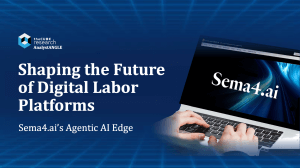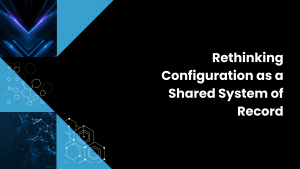Artificial intelligence workloads are becoming central to cloud computing. AI is assuming a larger role in optimizing the hyperconverged infrastructures that underpin today’s multiclouds, as well as premises-based “true private clouds” that approximate the public cloud experience.
AI-ready storage and compute integration is becoming a core requirement for many enterprise customers. Wikibon sees more solution providers offering this capability in hyperconverged platforms, with the new generation of hardware infrastructure coming packaged for AI workload optimization and also integrating AI-based tooling for managing and optimizing the infrastructure itself. Check out David Floyer’s recent Wikibon research on full-stack hyperconverged infrastructure solutions and a separate study that dissects AI’s potential to add value to them.
Recently, Wikibon called attention to a joint announcement by Pure Storage Inc. and Nvidia Corp. of a new integrated hardware/software platform for distributed training and other compute- and storage-intensive AI workloads. Addressing these same enterprise requirements, Dell Technologies Inc. made several important product announcements this week, rolling out a range of hyperconverged infrastructure products designed to accelerate and scale AI workloads in both on-premises and hybrid cloud deployments:
- AI-optimized hardware components to manage complex workloads in hyperconverged infrastructure: The company unveiled a new version of its Dell EMC VxRailhyperconfigured infrastructure appliance product (pictured). At the heart of the new appliance are Intel Corp.’s new Xeon chips and Nvidia’s Tesla P40 graphics processing units for more intensive AI, computer-aided design and other workloads. In addition to combining compute and storage to simplify information technology operations, the VxRail integrates with the vSAN and vSphere virtualization software from Dell’s majority-owned VMware Inc. It supports new NVMe cache drive options for lower-latency performance, as well as 25GbE networking to deliver more aggregate bandwidth.
- AI that runs in optimized chipsets in hyperconverged server platforms: Dell announced new versions of its Dell EMC PowerEdge servers. The new PowerEdge R840 and PowerEdge R740 are both four-socket servers that embed Intel’s Xeon Scalable processors, Intel field-programmable gate arrays, Nvidia GPUs and Xtremio flash drives. Dell also unveiled a new version of the Dell EMC VxRack SDDChyperconverged appliance that incorporates the vendor’s new PowerEdge servers and comes bundled with version 2.3 of VMware’s Cloud Foundation software for on-premises or as-a-service deployment in public clouds that come optimized for AI, machine learning, and in-database analytics workloads. The company also provided a preview of its PowerEdge MX modular infrastructure, which will be available in the second half of this year and will enable customers to configure their hyperconverged infrastructure flexibly, optimizing compute capacity, acceleration cards, memory and I/O connectivity for distinct fine-grained workloads.
- AI that optimizes storage within hyperconverged environments: Dell announced a new version of its Dell EMC PowerMaxstorage array, a rearchitecture and renaming of its flagship VMAX enterprise product line. The new PowerMax incorporates nonvolatile, memory-based architecture for extreme low-latency performance on real-time AI, IoT, mobile and other use cases. It supports end-to-end NVMe-over-Fabrics and high-speed, low-latency Storage Class Memory. It also embeds real-time ML engine that uses predictive analytics and pattern recognition to drive intelligent storage automation. The ML engine is leverages data from Dell EMC’s installed base of VMAX3 and VMAX all-flash capacity for its storage intelligence. The vendor also unveiled a new version of its XtremIO all-flash arrays, which incorporate new data replication capabilities that only sending unique or new data to a remote site, thereby reducing bandwidth and storage requirements.
- AI that configures hyperconverged hardware for application acceleration: Dell announced a new version of its hardware system optimizer leverages AI for on-the-fly system configuration to boost the performance of specific software applications. Available now, Dell Precision Optimizer 5.0uses data from an application’s background behavior to train machine learning models that can then automatically adjust system configurations such as CPU, memory and storage to provide the most optimal settings.
These announcements advance Dell’s strategy of helping customers build hyperconverged data lakes to power sophisticated AI applications. As Chairman and Chief Executive Michael Dell stated here:
- “If you have your data in a hundred places in your company, you can’t actually apply AI to it. You need to build data lakes, you need to aggregate this data and you need a lot more of it to be able to do the learning and the inference. We’re helping customers build that infrastructure. As Dell Technologies comes together with VMware, Pivotal, Dell EMC, solutions like Isilon are critically important for these massive data lakes.”
Dave Vellante and Stu Miniman, co-hosts of theCUBE, SiliconANGLE’s livestreaming video studio, analyzed the company’s strategy and roadmap following Dell’s keynote at this week’s Dell Technologies World 2018:
And here’s Dell himself interviewed by Stu at the show:



